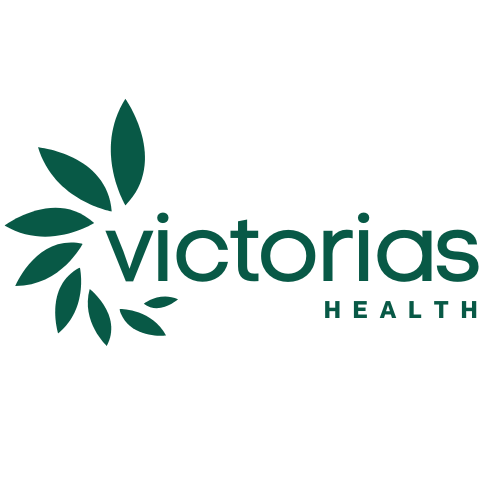Not everyone is cut out for a career in healthcare. If you’re thinking about it, you need to be honest with yourself. It’s not just about job security or good pay—it’s about dealing with people at their best and worst, handling stress, and sometimes making real sacrifices. Some thrive in this kind of environment; others burn out fast.
There are many ways to enter healthcare. Some require years of medical school, while others offer faster tracks, like nursing programs.
If you’re already a nurse, online RN to MSN programs can be a way to move up without pausing your career.
But before you commit, let’s talk about what it really takes to succeed in this field—and whether it’s the right fit for you.
Do You Actually Like Helping People?
Sounds like a dumb question, right? But be honest—do you genuinely like dealing with people, especially when they’re sick, scared, or in pain?
Because that’s the core of healthcare. It’s not just about “helping people” in a feel-good, inspirational way. It’s about being patient when someone is rude because they’re in pain.
It’s about staying kind even when you’re exhausted. It’s about handling bodily fluids, bad smells, and emotional breakdowns without losing your cool.
Some people get into healthcare because they think it’s a “noble” profession or because their family expects them to. But if you don’t truly care about people—even when they’re at their worst—you’re going to hate this job. And worse, you might become the kind of healthcare worker that patients dread.
So ask yourself: “Do you like really helping people, or just the idea of it?”
Can You Handle Blood, Stress, and Long Hours?

Healthcare isn’t some cozy office job where you sip coffee and type emails. It’s messy, unpredictable, and exhausting. You’ll see blood, vomit, open wounds, and things you can’t unsee. If you’re squeamish, you better get over it fast—or choose a role that keeps you away from the hands-on stuff.
Then there’s the stress. Patients’ lives might literally be in your hands. One mistake could have serious consequences. Can you stay focused under pressure? Can you make quick decisions when things go wrong? Because in healthcare, things will go wrong.
And let’s talk about hours. If you like the idea of a 9-to-5, forget it. Many healthcare jobs demand night shifts, weekends, and holidays. Your sleep schedule might get wrecked. Your social life? Could take a hit. If you want a strict work-life balance, this might not be the career for you.
So, can you handle all that? Or does it already sound like too much?
Can You Cope with Tough Situations?
You will see suffering up close. You will witness loss. You will have days where nothing you do is enough. Some patients will recover, but some won’t. And sometimes, it won’t be fair.
Can you handle telling a family their loved one didn’t make it? Can you stay professional when a child is sick, when an elderly patient is alone, or when someone in pain lashes out at you? Because it will happen. And you can’t just break down every time.
At the same time, you can’t shut yourself off completely. If you stop caring, you stop being good at your job. Finding that balance, caring without letting it destroy you, is one of the hardest parts of working in healthcare. Some people can do it. Others burn out fast.
So ask yourself: “When things get heavy, will you be able to keep going?”
Is the Money Worth It?

Healthcare can pay well, but it’s not a golden ticket to easy money. The salary depends on what you do, where you work, and how much education you’re willing to invest in.
Some roles pay six figures; others barely scratch a living wage. And let’s not forget the student debt, long training periods, and the years you might spend grinding before you reach a comfortable paycheck.
Who Makes the Most?
- Doctors (MD/DO) – Specialists like surgeons, anesthesiologists, and cardiologists can make anywhere from $300K to $600K+ per year. But they also rack up hundreds of thousands in student loans and spend 8-12 years in school and training. Primary care doctors (family medicine, pediatrics) earn less, around $200K-$250K on average.
- Nurse Practitioners (NP) & Physician Assistants (PA) – These advanced practice providers typically earn between $110K-$150K. Less schooling than doctors, but still require a Master’s degree and rigorous training.
- Registered Nurses (RN) – Big range here. Hospital nurses can earn $75K-$100K, while travel nurses can make $120K+. However, bedside nursing is demanding, and burnout is real.
- Respiratory Therapists, Radiologic Technologists, and Other Allied Health Roles – Typically earn $60K-$90K, with less schooling required than nurses or doctors. These can be solid, stable jobs with good demand.
- Certified Nursing Assistants (CNA) & Medical Assistants (MA) – These are entry-level positions that pay around $30K-$40K. The work is tough, the pay is low, and upward mobility is limited unless you go back to school.
Is the Investment Worth It?
- A doctor might make $500K a year, but if they have $300K in student loans and spent a decade training, that money comes with a huge price.
- A nurse can start working much sooner (2-4 years of school) and make $75K-$120K, which is solid without insane debt.
- A CNA or Medical Assistant can get started quickly (a few months of training) but won’t earn much, and the job can be physically draining.
Is Healthcare a Safe Bet?
If you’re looking for stability, healthcare is one of the safest industries out there. People will always need medical care.
Jobs like nursing, respiratory therapy, and physician assistants are expected to keep growing. But that doesn’t mean every role is secure.
Some areas, like medical transcriptionists, are being phased out by technology. And not every hospital or clinic pays well.
How Much Are You Willing to Invest?

Every role has a different path, and some require years of school, brutal exams, and expensive tuition. Others let you start working within months.
The real question is: How much time, money, and effort are you actually willing to put in?
| Career | Education Time | Cost of School | Starting Salary | Growth Potential |
| Certified Nursing Assistant (CNA) | 4-12 weeks | $1K-$3K | $30K-$40K | Low |
| Medical Assistant (MA) | 6-12 months | $5K-$15K | $35K-$45K | Moderate |
| Phlebotomist | 4-6 months | $1K-$5K | $35K-$50K | Low |
| Registered Nurse (RN) | 2-4 years | $10K-$50K | $75K+ | High |
| Radiologic Technologist | 2 years | $8K-$30K | $60K-$90K | Moderate |
| Respiratory Therapist | 2 years | $10K-$40K | $65K-$85K | High |
| Surgical Technologist | 1-2 years | $5K-$25K | $50K-$70K | Moderate |
| Physician (MD/DO) | 8-12 years | $200K-$400K | $200K-$600K+ | Very High |
| Pharmacist | 6-8 years | $150K-$250K | $120K-$150K | Declining |
| Nurse Practitioner (NP) / Physician Assistant (PA) | 6-7 years | $50K-$150K | $110K-$150K | High |
Quick-Entry Healthcare Jobs
- Certified Nursing Assistant (CNA) – Takes just weeks, but the pay is low, and the work is physically demanding. Good stepping stone to nursing.
- Medical Assistant (MA) – A bit more training but a mix of clinical and admin work, mostly in doctor’s offices.
- Phlebotomist – If you don’t mind drawing blood all day, this is a quick-entry role with stable demand.
A Balance of Time and Pay
- Registered Nurse (RN) – The most versatile healthcare job. You can specialize, travel, or get advanced degrees to increase your salary.
- Radiologic Technologist – A solid choice if you’re interested in diagnostic imaging (X-rays, MRIs). Less stress than nursing, and good pay.
- Respiratory Therapist – High demand, good pay, and you help people with breathing problems (ICUs, sleep clinics, home care).
- Surgical Technologist – A fast way into the operating room, but limited career growth unless you pursue further education.
Long-Term Investment Careers
- Doctor (MD/DO) – The top of the food chain, but it takes a minimum of 8-12 years before you’re fully practicing. The debt can be brutal.
- Pharmacist – Used to be a guaranteed high-income job, but automation and oversaturation are reducing demand in many areas.
- Nurse Practitioner (NP) / Physician Assistant (PA) – Less schooling than doctors, great pay, and growing demand.
Can You See Yourself Doing This Long-Term?

Some people jump into healthcare for the paycheck or because it feels like a “safe” career. But the real question is: Can you see yourself doing this for decades?
The good news? Healthcare isn’t going anywhere. People will always need doctors, nurses, and medical staff. Even when the economy crashes, hospitals don’t shut down. It’s one of the few careers where stability is almost guaranteed.
But not every job in healthcare grows the same way. Some let you move up, specialize, or even shift to a different field. Others trap you in the same position for years, unless you’re willing to go back to school.
Take nursing, for example. You can start as an RN, then become a Nurse Practitioner, a nurse educator, or even move into hospital leadership. The same goes for physician assistants and therapists—if you’re good, your options grow. But if you start as a medical assistant or a CNA and never go back to school, your job won’t change much. The pay stays low, and the work stays just as tough.
And then there are jobs that used to be gold mines but are now drying up. Pharmacists once made six figures easily, but automation and an oversaturated job market have made it harder to land those high-paying positions. Medical billing and coding? Same deal—computers are starting to take over.
So here’s the big question: Do you want a job that just gets you by, or a career that lets you grow? If you’re picking a healthcare path, think beyond the first paycheck.
Last Words
Healthcare isn’t just a career—it’s a lifestyle. It’s long hours, tough emotions, and constant learning. Some people thrive in that chaos. They love the challenge, the fast pace, the feeling of making a difference. Others burn out fast, realizing too late that the stress, the sacrifices, and the emotional weight are too much.
The truth? You can’t fake it in this field. If you’re only in it for the money, the stability, or because someone told you it’s a “good job,” you’ll hate it. But if you genuinely care, if you can handle the pressure, if you want a career that pushes you every single day—then yeah, healthcare might just be the right path for you.
Just be sure before you commit. Because once you’re in, people will depend on you. And in this job, half-hearted doesn’t cut it.

